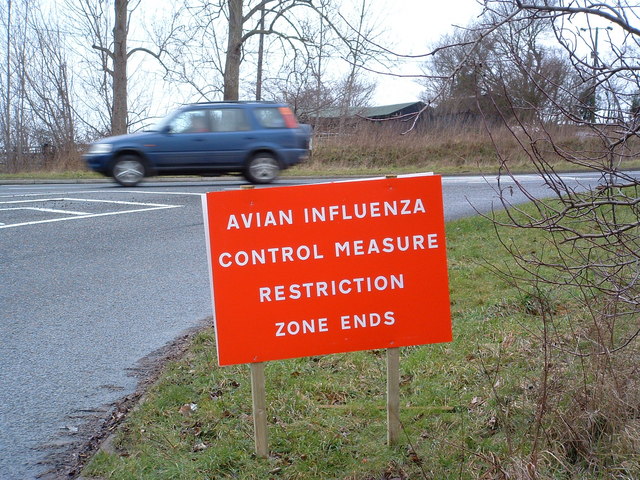
Strict restrictions have been put in place in part of Dorset following an outbreak of highly pathogenic avian influenza in wild birds.
Bird flu has been confirmed in 17 wild bids - believed to be mainly mute swans.
The virus is closely related to H5N6 - a strain that has been circulating in wild birds across Europe in recent months.
No commercial poultry has been affected but the Department for Environment, Food and Rural Affairs (Defra) has ordered enhanced bio-security restrictions in areas around Weymouth and Portland.
Robert Gooch, chief executive of the British Free Range Egg Producers Association (BFREPA), said he understood there were only five commercial poultry units in the affected area, although he warned all egg producers to tighten levels of bio-security following confirmation of the outbreak.
"Obviously any producers in the affected zone need to make sure they closely follow the advice and restrictions from Defra," Mr Gooch explained.
"But all members should enhance their biosecurity and be extra vigilant. The virus has travelled from Europe and passed across other parts of England to reach Dorset so we need to be extra cautious."
'Highly infectious'
Defra says that this is the first case in the United Kingdom this winter, although it says it expects more over the coming days.
Chief vet Nigel Gibbens said: “This is the first time avian flu has been identified in the UK this winter and while the disease does not represent a threat to the public, it is highly infectious and deadly to birds.
“As the virus has been circulating across Europe, this finding has not come as a surprise," he said.
“But it is vital that anyone who keeps birds - whether a few in a back garden or thousands on a farm - is vigilant for any signs of disease, reports suspect disease to APHA and maintains good bio-security to reduce the risk of their birds becoming infected,” said the chief vet.
'Much better this year'
Robert Gooch said the threat from the continent seemed to be less this year.
By this time last winter there had been more than a thousand outbreaks on farms across the Channel in Europe.
So far this winter there had only been nine, he said. "Clearly the position in Europe is much better this year."
Last winter housing orders in the UK and other parts of the EU in response to AI outbreaks threatened the livelihoods of free range egg producers.
Under EU law at the time, free range birds could only be housed for 12 weeks before losing their free range status - leading to significant financial losses for farmers.
The European Commission has now extended this derogation to 16 weeks. Even if housing orders were now put in place, the extended derogation would now last beyond the danger period. "The changes ought to see us through," said Robert Gooch.
"The 16 weeks would take us to mid-May, by which time the level of risk would have fallen. Migrating birds would have gone back to the Arctic."
Strict biosecurity
Defra says that all poultry keepers in the designated avian influenza prevention zone in Dorset must follow detailed requirements on strict biosecurity, whether they have commercial flocks or just a few birds in a backyard flock.
"If you keep poultry, you should keep a close watch on them for signs of disease, and maintain good bio-security at all times," it said in guidance for poultry keepers.
"If you have any concerns about the health of your poultry, seek prompt advice from your vet."
Defra said the announcement meant it was mandatory for all captive bird keepers in the designated zone to put enhanced bio-security measures in place.
This includes feeding and watering birds indoors to minimise mixing with wild birds, minimising movement in and out of bird enclosures, cleaning and disinfecting footwear and keeping areas where birds live clean and tidy. This would be in place until further notice and would be kept under regular review.
Poultry threat 'low'
Defra said that, despite the outbreak, the risk to domestic poultry nationally remained low.
However, it said good biosecurity was essential. It reminded bird keepers across the country to follow biosecurity advice on the Government web site, which included specific advice for keepers of backyard flocks.
It said poultry keepers and members of the public should report dead wild birds on the Defra helpline on 03459 33 55 77 and keepers should report suspicion of disease to APHA on 03000 200 301.
Further avian influenza advice, including how to spot the disease, was available on the Government site, it said.
Trade should not be affected following findings in wild birds, according to the rules of the World Animal Health Organisation (OIE).
The Food Standards Agency has said that bird flu does not pose a food safety risk for UK consumers.
